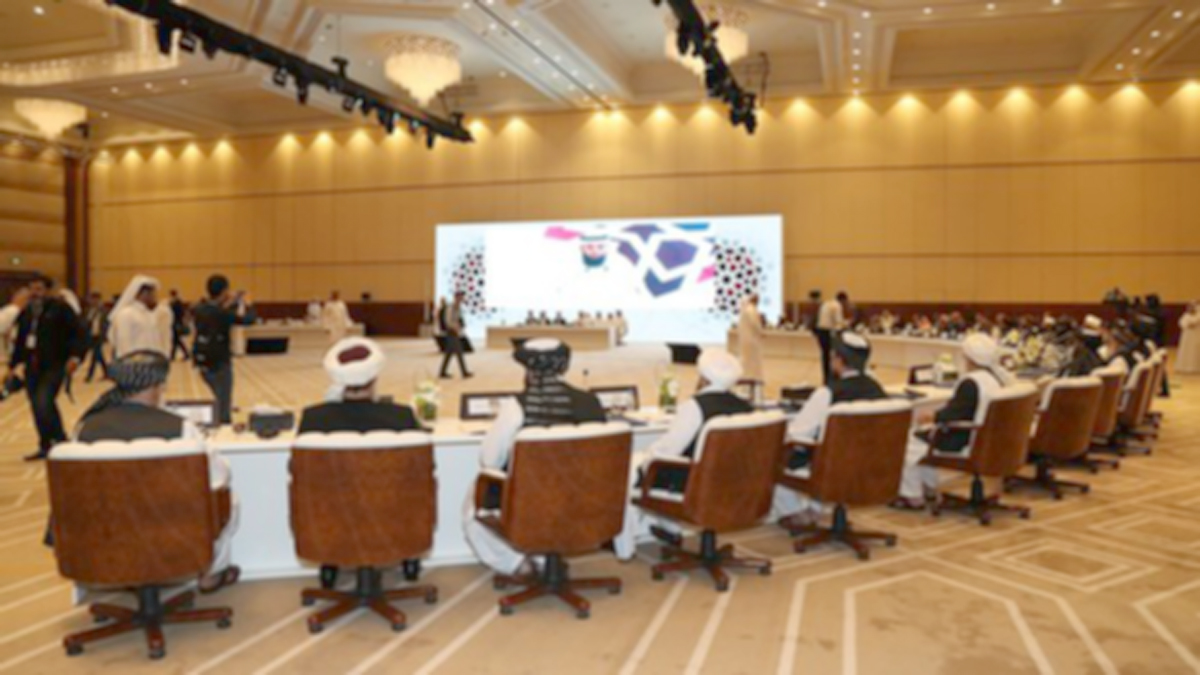By Abdul Rahman
Conflict is always resolved by opening channels of communication between the all parties involved. Due to the different stances of the parties involved, the role of a third party becomes very crucial because it may not only help in maintaining neutrality but also respect the interests of all actors.
The 17-year-long war in Afghanistan is seemingly entering its final stages, where channels of communication are most important to neutralize unresolved agendas. US Senior Adviser Lisa Curtis, Secretary of State Mike Pompeo, and Principal Deputy Assistant Secretary for the Bureau of South and Central Asian Affairs Alice Wells recently visited South Asia to explore the possibility of resuming the Afghan-reconciliation process.
The US and Afghan governments’ stance of an “Afghan-led and Afghan-owned” peace process has not helped the cause. Hence all the stumbling blocks need to be addressed before moving ahead. And Zalme Khalilzad was assigned the task to finalize peace treaty with Afghan Taliban. More than dozen rounds of talks took place. But all of sudden the process was stopped by USA. This shows American that Americans not serious to leave Afghanistan.
The Afghanistan security dilemma is responsible for instability, which is not only weakening Afghanistan internally and externally, but also upsetting regional countries like China, Iran, Russia, Central Asian states, and most importantly Pakistan. Hence, it is imperative for all regional powers to play a constructive role for peace and stability in Afghanistan.
From Pakistan, Permanent Envoy to the United Nations, Maleeha Lodhi, COAS Gen Qamar Javed Bajwa, Foreign Secretary, the Head of the Inter-Services Intelligence (ISI) and other senior military officials have played the role of mediator. Pakistan is not solely responsible for bringing Taliban to the negotiating table. It is the responsibility of all stakeholders in Afghanistan to come and sit together.
The Iranian diplomat in Afghanistan wanted to act as a mediator between Taliban and the Afghan government. Iran’s Defence Minister, Amir Hatami, stated that his country would “provide Afghanistan with advisory and security assistance in its fight against terrorism”. Indonesia Ambassador to Kabul Dr Arif Rahman stressed the need for enhanced economic cooperation between Afghanistan and the Muslim world to achieve peace in the war-torn country. The dynamics of global and regional politics have changed from defense and security issues to trade and business opportunities. The strategic environment of South Asia has new opportunities on offer, including China-Pakistan Economic Corridor (CPEC) and One Belt One Road (OBOR).
Hence all the issues should be resolved to avail new horizons with these economic projects. The new emerging drift of economic and regional integration will explore the markets for prosperity. Growing connectivity, economic development and military cooperation in the region will lead to peace, prosperity and security. The US has reviewed its policy towards Afghanistan and offered direct talks with the Afghan Taliban without any conditions.
Up till now, progress is slow, but such incremental steps can have beneficial effects The cease-fire on Eid which lasted three-days is a positive sign for the peace process. The UN Secretary-General’s Special Representative for Afghanistan, Tadamichi Yamamoto, said in a statement that he hoped the ceasefires would “serve as a stepping stone” towards peace talks between the Afghan government and the Taliban.
Unfortunately, Afghan Taliban is reluctant to talk with the Afghan government, resulting in a deadlock in the reconciliation process. Despite demands from the Afghan government, US and Pakistan, Taliban did not approve of extending the ceasefire. On June 17, Taliban declared that they would not extend a three-day ceasefire with Afghan security forces. Donald Trump commencing extensive talk process immediately stopped and then requested re start the negotiations. Pakistan did so. The Taliban Leaders and US representative Zalme Khalil zad met in Islamabad to discuss further at later stage.
In this way, USA is trying to develop its bargaining position stronger. It would like keep its bases in functioning against Pakistan, Iran, Russia and China. The USA is also planning to promote the idea Willayah Afghanistan and Pakistan to increase its presence in Afghanistan.
The Taliban should understand that they no more single power of Afghanistan, they have to reconcile with other groups as early as possible so that USA could not have time and room to launch ISIS and strengthen it by arms and joining Afghan power due to slogan of Willaye Afghanistan. Anyhow, USA and India are working harm Pakistan and China economically in CPEC and Tapi gas pipe line. Tapi project may not affect Pakistan much to Pakistan if it is disturbed but putting CPEC in difficulty will certainly harm Pakistan very badly. USA has the plan to destabilize Afghanistan, Pakistan, Iran, central Asian Countries, China and Russia.This plan should be checked by all these countries joining hands together.


